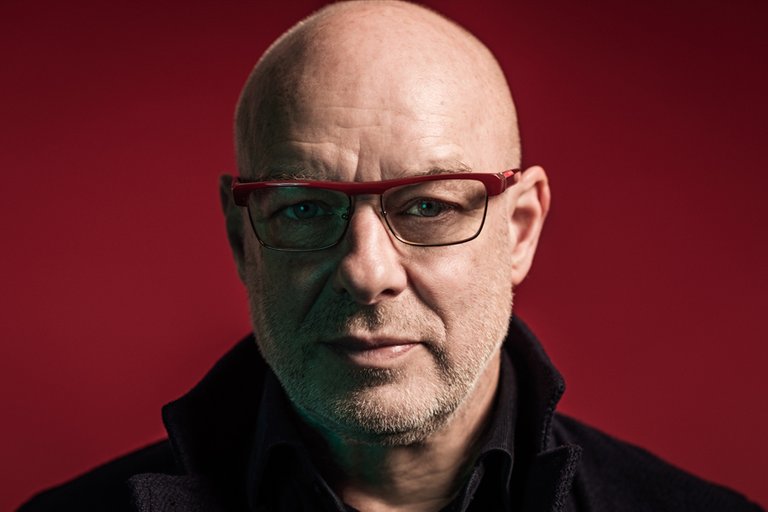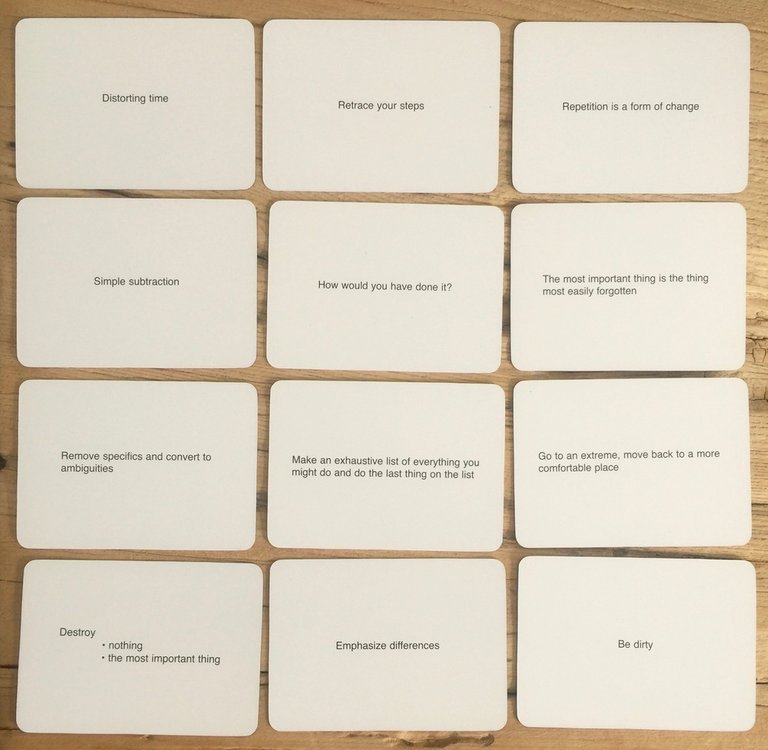"Stop thinking about art works as objects, and start thinking about them as triggers for experiences. That solves a lot of problems: we don’t have to argue whether photographs are art, or whether performances are art, or whether Carl Andre’s bricks or Andrew Serranos’s piss or Little Richard’s ‘Long Tall Sally’ are art, because we say, ‘Art is something that happens, a process, not a quality, and all sorts of things can make it happen.’ … [W]hat makes a work of art ‘good’ for you is not something that is already ‘inside’ it, but something that happens inside you — so the value of the work lies in the degree to which it can help you have the kind of experience that you call art.”

Few people have influenced the sounds and production strategies of modern pop music more than Brian Eno. The English composer, producer, and all around art-creator has dipped his pioneering hands into so many influential projects that the modern world would be unrecognizable without his influence. He’s rubbed shoulders with The Talking Heads, David Bowie, Devo, and a giant guest-list of other artists in the pop, rock, ambient, and electronic music worlds.
In 1975, Eno and Peter Schmidt published a deck of flashcard called Oblique Strategies (Over One Hundred Worthwhile Dilemmas). Each card contains a suggestion for approaching a problem or dilemma, especially creative mental blocks. The cards are a quick way to thrust your brain into new patterns of thinking and have saved me from several problems which have simple but seemingly invisible solutions. Here are a few thought-provoking examples.

Change your thinking. Destroy your writer’s block. Find your favorites and write them down, or visit this Oblique Strategies Generator for some instant ideas.
"Changing ourselves. Surely that must be what we’re after when we look at pictures and watch movies and listen to music. It sounds more Californian than it really is. Changing ourselves includes switching on the radio when we’re bored — to change from being someone who’s bored to someone who’s being less bored, or bored in a different way. But of course we would prefer to think that the art we venerate does more than feed us sensations to keep us from the gloom of everyday existence. (Why would I prefer that? What’s wrong with the opposite? I remember someone saying that all human creativity is a desperate attempt to occupy the brief space or endless gap between birth and death.) We would like to think that art remakes us in some way, deepens us, makes us ‘better’ people.”
Do you have any strategies for navigating difficult problems in your life? How do you bypass creative blocks or stagnant moods?
Thanks for reading, Steemit!



I remember Dylan saying that his music can provide a temporary escape from all the evil in the world.